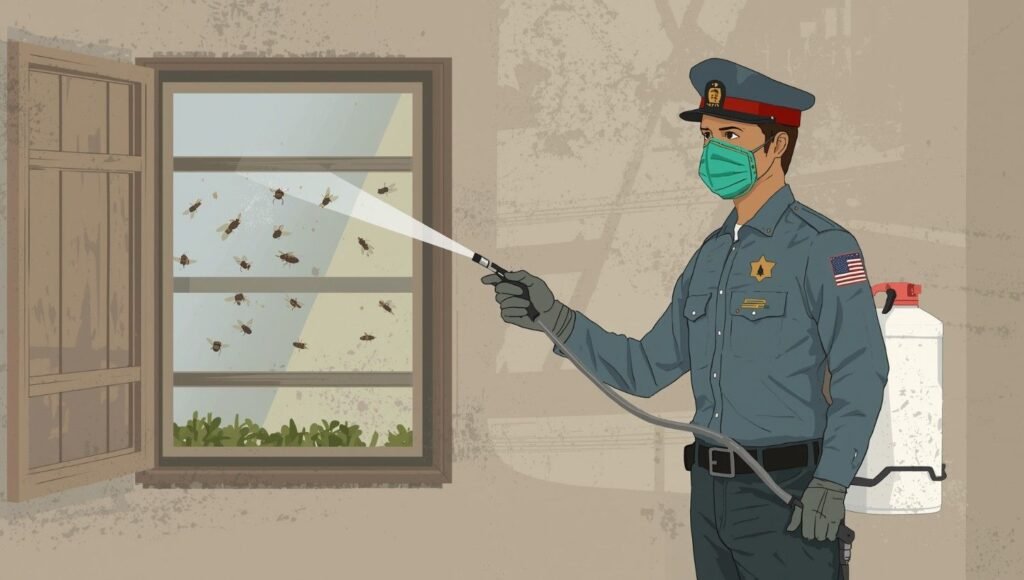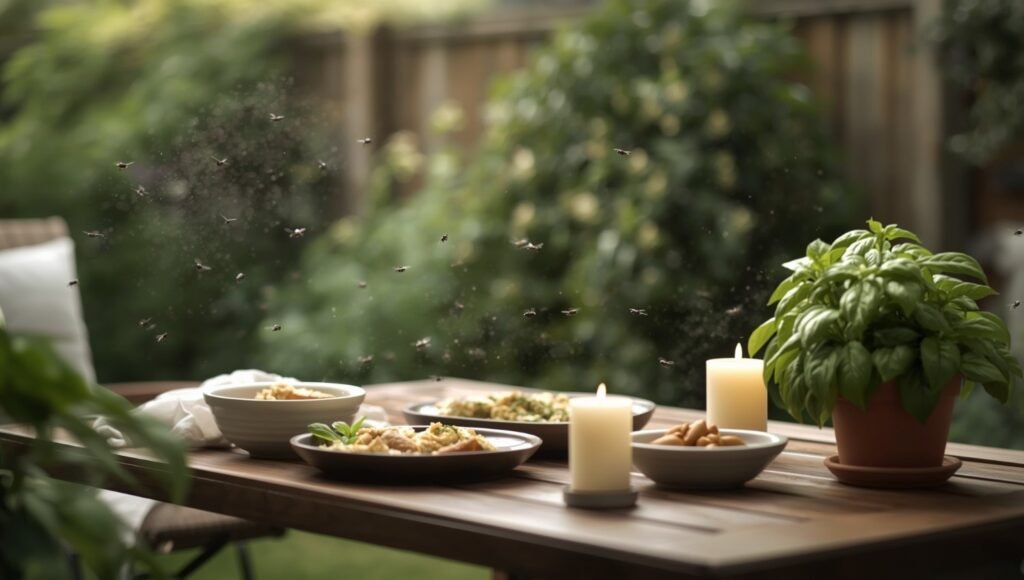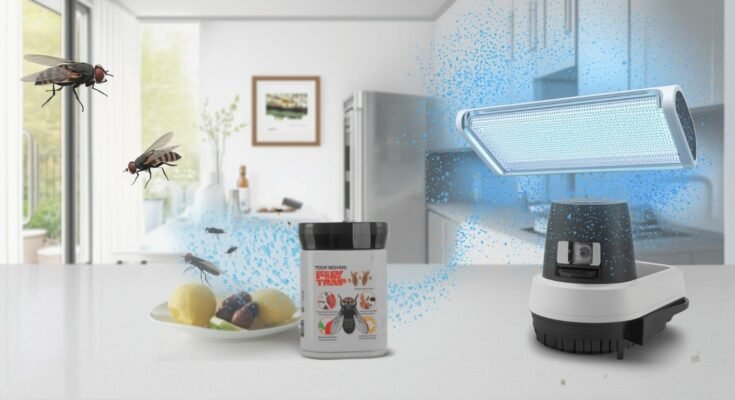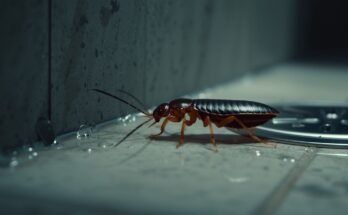Introduction
When I first tried to get control of the flies around my home, I was surprised to learn how fast a female can lay eggs that mature into an adult fly in just a few days. Over the years, I’ve seen how common houseflies and fruit species can turn a joyful moment on the patio or during a barbecue into an annoyance. These pests thrive in warm and moist environments, feeding on rotten food, manure, or garbage, and they breed in filth so quickly that a small oversight can become a severe problem. As a result, they not only mess with daily life but also transmit disease, which affects human welfare.

Why Flies Multiply So Fast?
Over time, I learned to identify the sources of these infestations and apply proper sanitation and exclusion methods to keep them away. For example, a few gathered crumbs of delicious food left waiting on the table can attract mosquitoes and flies, while dying fruit or garbage in the bin becomes a huge pest magnet. People often overlook how handy a little DIY prevention can be—simple steps like sealing bags, wiping down outdoor surfaces, or covering bins reduce the annoying presence of these insects. I often teach friends that these tiny actions make a big impact: they keep the household safe, prevent long-term infestations, and stop flies from cutting into the joyful parts of life we all want to enjoy.
How To Get Rid of Houseflies Naturally?

I learned that houseflies aren’t just annoying; they’re a nuisance that can carry bacteria and be dangerous to humans, facilitating food poisoning and respiratory infections. The most effective ways to get rid of them naturally became a necessary quest for me—using natural methods to ensure I keep flies away from my home; when flies show up, I follow these steps.
Step 1. Start With Prevention
From experience, I always start with prevention; this step keeps bins closed, crumbs cleared, and trouble low.
Step 2. Use Natural Fly Repellents
Next, I use natural repellants that target the fly without harsh chemicals; this step is easy to keep up with every day.
Step 3. Use Fly-Repellant Aromatics Such As Citronella
I also use fly-repellant aromatics like citronella around doors and windows; in this step, the gentle scent does the quiet work.
Step 4. Create Natural Traps
Finally, I create natural traps to catch stragglers; this step quietly reduces numbers overnight.
How to Get Rid of Flies in 8 Easy Steps?
1. Start With Prevention
It’s always smart to start with prevention. Simple techniques that repel flies are worth knowing because they’re based on common sense and good practices. These small habits help to prevent the breeding and growth of flies in the first place, and I’ve seen firsthand how effective they can be when applied daily.
Cleanliness
Keeping up with cleanliness around the home and patio is a solid idea. After a gathering or barbecue, any dropped food becomes a source for pests to feed on. I always make sure to properly seal rubbish bags and the bin, which instantly reduces fly visits.
Lighting
Lighting can make a big difference. Bright lights, especially white bulb ones, are fly and mosquito magnets. By dimming lamps during an outdoor get-together or using yellow bulbs, you follow simple tips for removing mosquitoes. I also replace mine with sodium vapour lights and never leave them on all night.
2. Use Natural Fly Repellants
I often use natural methods because a fly problem doesn’t need chemicals. With the right repellents, plus other preventative measures, you can manage flies both on your patio and at home. These repellants not only help to keep flies away, but they can also be made into homemade sprays, added through herbs or plants, or even involve pest control using creative ideas that actually work.
Natural Sprays That Repel Flies: Hydrogen Peroxide
One easy solution is hydrogen peroxide. I mix it in a spray bottle with water to form a mixture for surfaces where flies linger, and the results are small but real wonders.
Vodka
Another trick is vodka. Interestingly, mosquitoes aren’t fans of it. A vodka-based repellent can be made with a glass, teaspoons of aloe vera juice, a teaspoon of eucalyptus oil, and a drop of essential oils. Once you mix the ingredients, apply them on the skin or around areas with mozzies, but always test a small patch to avoid irritation.
Mouthwash
Mouthwash is another go-to. I use an alcohol-based solution in a spray bottle, applying it on legs of tables, chairs, or any surface of the patio. Flies hate it, plus it keeps the environment smelling fresh and minty.
Anise Oil
I sometimes rely on anise oil, a sweet herb for repelling bugs. Just a few drops in a spray bottle with water, a quick shake, and it’s ready for surfaces or outdoor areas.
Essential Oils
Using citronella is classic. I repel flies with witch hazel, a spray bottle, drops of eucalyptus and lavender essential oils, creating a natural bug-repellent mix.
Lemongrass Oil
Lemongrass oil is a favorite—drops of essential oil mixed in hot water form a bug repellent with a citrusy aroma. It keeps pests away while aromatising the home naturally.

8 DIY Tips to Stop the Breeding Cycle of Flies
When you want to make life difficult for these critters, the best way is to stop their breeding cycle. I’ve used simple diy methods, and these tips always worked to reduce flies around my place.
1. Throw out rotting food
Any food that starts to rot, especially fruit, smells very attractive to our flying friends. I always pack leftover foods in airtight containers and keep them in the cupboard or fridge so nothing is left out.
2. Keep surfaces dry
Keeping surfaces clear of food and dry is important. Even a small smear of water looks like a tall drink for a fly.
3. Keep surfaces spotless
By keeping surfaces spotless, you deter flying insects from landing in your zone. Fruit flies love tiny splashes of sugary drinks, so I stay vigilant with wiping benches regularly.
4. Bag animal faeces
Animal faeces in the garden are a big attraction for flies. I make sure to bag and bin all droppings so they don’t end up on my kitchen surfaces.
5. Rubbish bins
Rubbish bins are a popular source of food for flies. Keep lids closed, and I often hose the bins to remove sticky debris.
6. Fallen fruit
When I survey my property, I always pick fruit from the trees in the garden. Pick any fallen or rotting pieces because they quickly become a tasty treat for a fly.
7. Use Ecomist Sniper
I use Ecomist Sniper near bins, doorways, and entry points of the home. It creates an invisible barrier to kill flying and crawling insects on contact.
8. Set Automatic Dispenser
Another great tool is the Ecomist automatic dispenser. On the med-high setting, it sprays at regular dispensed intervals to prevent flies from entering indoors.
Closing line
With these tips, you can ensure your environment is fly–free all season long.

The Final Word
Over the years, I’ve tried many remedies to keep flies and mosquitoes at bay, and some of them even turned out to be quite fun. Whether it’s using natural tricks in the backyard or simple routines during summertime, these small efforts make a big difference. If one method fails, another usually works, letting me go on enjoying my space without the constant flying bother.
Still, when the property feels overrun, it’s smart to get in touch with pest control experts. They can truly help find the right cure once and for all, especially when dealing with stubborn infestations that don’t go away on their own.
FAQs About Fly Control
What Attracts Flies to My Home or Garden?
Flies are drawn to food waste, pet waste, overripe fruits, and standing water. You can reduce these attractants by keeping your surroundings clean, disposing of garbage quickly, and removing any water that collects in open spaces. Doing this will greatly lower the chances of a fly infestation.
Are There Any Natural Remedies to Get Rid of Flies?
Yes. You can use natural remedies like sprays made with essential oils such as lavender or eucalyptus, simple vinegar or wine traps, or even grow fly-repelling plants like basil and lavender around your home. These methods are safe and effective.
How Can I Prevent Flies from Entering My House?
Block flies from getting indoors by sealing cracks, installing fine mesh screens on windows, keeping doors closed when possible, and managing household waste properly. These small steps make it harder for flies to find entry points.
How Do I Get Rid of Flies in My Kitchen/Food Areas Safely?
In food areas, stick to non-toxic methods like sticky traps or UV light traps. Always keep the kitchen clean, store food in airtight containers, and throw away garbage regularly to stop flies from multiplying.
Can Flies Transmit Diseases?
Yes. Flies can spread harmful diseases such as food poisoning and dysentery by contaminating food and surfaces. Protect your family by keeping the home clean, covering food, and using proper fly control methods.




